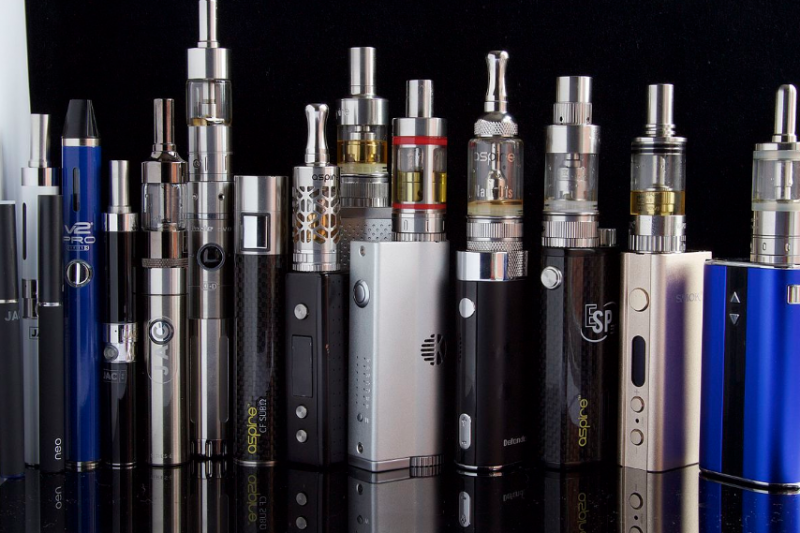Smoke and mirrors on issue funding won’t deter critics
When it comes to communicating your sources of funding, the issue isn’t just how things are, but how things appear, writes crisis comms expert Tony Jaques.
Transparency should be the basis for effective issue management, especially when it comes to who’s paying the bills. How a campaign is funded not only needs to be appropriate, but must also be seen to be appropriate.
This was the lesson for a group of doctors lobbying for nicotine e-cigarettes as a way to help people quit smoking when a news report revealed their set-up funding came from an e-liquid supplier and an e-cigarette company. 
The Australian Tobacco Harm Reduction Association (ATHRA), which wants to overturn the ban on vaping nicotine without a doctor’s prescription, said it would “get funding from the vendors and whoever else – not tobacco companies obviously – but it will be at arm’s length, with a view to having a detailed website on the safety of e-cigarettes, where to buy them, how to use them.”


“the vaping industry is increasingly the domain by the major tobacco companies”.
How’s that, Tony? Reckon ‘big tobacco’ are very very subtly financing the advancement of a new industry that stands to erode (if not seriously traduce) their core business? Care to shed light on the why and the how of this unlikely initiative?
It seems counterintuitive, but it is true that Big Tobacco is taking a major market share of the e-cigarette industry.
Although this was not my main point, the reasons are spelled out in the long piece from The Verge linked in my story.
With regard to ownership, Huffington Post, for example, reported last year that the popular brand VUSE, is owned by R.J. Reynolds Vapor Company, a subsidiary of the tobacco giant Reynolds America.
British American Tobacco (BAT), the largest tobacco company in the Europe, launched Vype around four years ago and Altria (formerly Phillip Morris) owns MarkTen.
Lorillard paid $135 million for Blu, but when R.J. Reynolds bought that tobacco company in 2015, its e-cigarette brand was sold to Imperial Tobacco, a company in the United Kingdom.
This trend is not new and a very detailed report in 2017 discussed how big tobacco companies have come to dominate the e-cigarette market through a series of mergers and acquisitions.
Feel free to contact me directly (Tjaques@issueoutcomes.com.au) and I am happy to send the links to anyone who wants more information on this
Cheers Tony, will be in touch.
Those e-cigs pictured don’t reflect the products being sold by big tobacco. Big tobacco is lobbying the FDA to have them (the one pictured) banned:
https://www.reuters.com/article/us-ecigarettes-regulations-specialreport-idUSKBN0MJ0GN20150323
All major tobacco companies have major interests in ecigs and related products. They are so big that they can pick and choose the time that they will take over the relative minnows in the ersatz vaping industry. This is exactly the history of what happened with the transnationals who began acquiring national tobacco companies, including former state monopolies, from the 1970s onward. There are very few left now. As you suggest, ATHRA’s claim that it was legally concerned about acknowledging its grants from the local ecig interests on its website contrast with the in-your-face willingness of those interests to publicise themselves.
This and other articles are just used to demonise tobacco harm reduction via a smear campaign. Its tiring politics that in the end harms smokers and their families by giving them less options to move away from tobacco. Unfortunately the public health/quit service/health charity industries are fully behind and actively lobbying against more options for smokers.Public health heroes furiously and almost daily tweeting anti-harm reduction messages is a really sad situation.
It shouldn’t matter who is investing in new harm-reduced nicotine products. What should matter is thorough independent peer-reviewed research on whether they are safer. On that count the evidence is overwhelming. Public Health England and the NHS in the UK are encouraging smokers to switch and have said they are 95% less risky than cigarettes. Canada and NZ are regulating and doing the same. Why isn’t Australia. Hopeless!
Tobacco companies now own many big e cigarette brands. Its hard to believe that governments are so much influenced by groups who have vested interest in causing harm to public. Government should make their independent decisions and not look for cash. Public health is much more important than anything else. Whether to allow nicotine or not should be based on facts, its good or bad effect and not on pressure from some group. Hope this pull and push about e cigarette ends soon and there is uniform regulation around Australia and also the world.